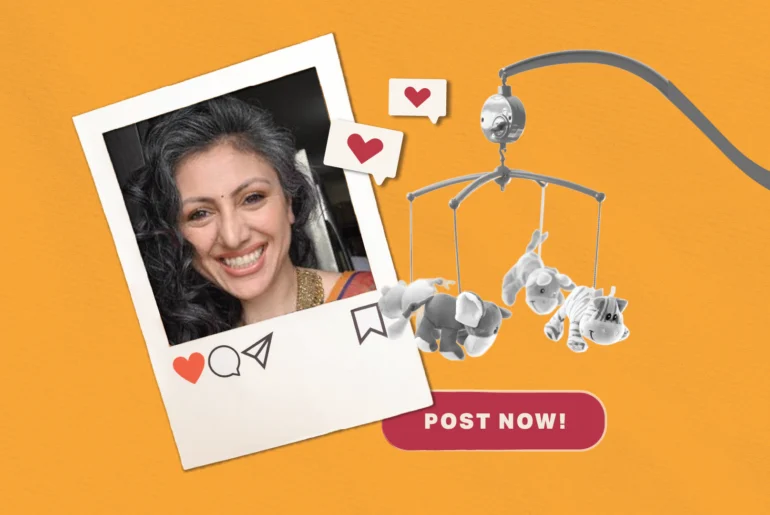Turning 50 and wondering about securing a loan? You’re not alone! We caught up with Rachana Patel and Neha Singh of Womeneysta to answer your crucial questions: Does age matter? What documents do you need? And how can you boost your application? Click to get expert insights and confidently navigate the world of midlife loans!
At the ripe old age of almost 50, I’ve decided to take on a home loan—because what’s life without a little financial anxiety, eh? While others dream of early retirement or second homes in the hills, I’m busy collecting income proofs, explaining my life choices to loan executives, and pretending that “tenure: 20 years” doesn’t make me slightly dizzy. It’s not a midlife crisis, it’s a midlife commitment—with interest, compounded monthly.
Whenever I have a money question, my phone automatically dials my friends Rachana Patel and Neha Singh, founders of Womeneysta. So naturally, I reached out. And they had answers for all of my questions. I have captured some of them here.
Does age matter when applying for a loan (especially between 40 and 60)?
Yes, age is indeed a factor, primarily because lenders assess your remaining working years to determine your repayment capacity. For instance, someone in their late 40s or 50s may be offered a shorter repayment period compared to a younger applicant. However, this doesn’t mean loans are out of reach. If you possess a stable income, minimal existing liabilities, and a strong credit history, securing a loan remains very much possible. Lenders value consistency and reliability, which often comes with experience.
What documents should I be prepared with?
Being prepared with the necessary documentation can significantly streamline your loan application process. Always have the basics readily available:
- PAN card and Aadhar Card for identity and address proof.
- Recent bank statements (typically for the last 6 months) to show financial activity and stability.
- Salary slips (for salaried individuals) or income tax returns (ITRs) for the past 2-3 years (especially crucial if you are self-employed or a freelancer) to verify your income.
- Your CIBIL score or credit report, which provides a comprehensive overview of your creditworthiness.
- Property documents (if you’re applying for a home loan), as these serve as collateral and are fundamental to the loan assessment.
Having these documents organized and ready demonstrates your seriousness and can expedite the approval process.
What can make my application stronger?
While age is a consideration, several factors can significantly bolster your loan application, showcasing your financial strength and reliability:
- A strong credit score: Aim for a CIBIL score of 750 or above. This indicates a disciplined financial history and a low risk to lenders.
- Steady income and low existing debt: Lenders prefer applicants with a consistent income stream and manageable debt-to-income ratios, as it suggests ample capacity for new repayments.
- Applying with a co-applicant: If you’re married and your spouse has a stable income, applying together can significantly boost your loan eligibility. It demonstrates shared financial responsibility and a larger collective income, making the application more attractive.
- A good repayment track record: A history of timely repayments on past loans or credit cards is a powerful indicator of your financial discipline and commitment to obligations.
Does marital status affect how my application is viewed?
Marital status does not directly affect how your loan application is viewed in terms of eligibility. However, if you are married and your spouse has a stable income, applying for a loan jointly can significantly enhance your loan eligibility. This is because it presents the bank with a broader financial base and shared responsibility, which can lead to higher approved amounts or better terms.
Is there a minimum amount I need to show in my bank account?
While there isn’t a universally fixed minimum balance required, lenders do scrutinize your average monthly balance and overall savings. This helps them assess your financial health and capacity to comfortably handle monthly loan repayments without undue strain. A healthy average balance indicates good financial management and liquidity.
I’m a freelancer or consultant — will that work against me?
Being a freelancer or consultant may present a slightly different assessment approach from traditional salaried employment, but it should not necessarily work against you. If you can demonstrate consistent income, you should be fine. Banks typically require 2–3 years of Income Tax Returns (ITRs) and bank statements that clearly reflect a steady flow of funds from your professional activities. Any long-term contracts or a portfolio of regular clients can also significantly help build trust in your repayment ability, showcasing the stability of your income despite its non-traditional source.
Should I check or improve my CIBIL score before applying?
Absolutely. Your credit score, particularly your CIBIL score in India, is one of the first and most critical factors lenders evaluate. A healthy score (generally above 750) can open doors to better loan chances, more favorable interest rates, and improved loan terms. If your score needs improvement, take proactive steps: clear any pending dues, ensure all EMIs and credit card bills are paid on time, and avoid applying for multiple loans or credit cards simultaneously, as this can negatively impact your score.
Do I need to furnish health insurance coverage if I’m over 50?
Health insurance coverage is generally not mandatory to secure a loan. However, for larger or longer-term loans, such as a home loan, financial institutions often prefer to have a life insurance policy attached to your loan, or for you to have a standalone life insurance policy. This is primarily to provide the bank with the assurance of repayment in the event of your untimely demise, safeguarding their investment. While health insurance isn’t a direct requirement for loan approval, having comprehensive health coverage is always a prudent financial decision for your overall well-being, especially as you age.
Navigating the loan application process in midlife comes with its unique set of considerations, but it is by no means an insurmountable challenge. My loan application has been pre-approved, so I’m a real-life example of that loan milega. By understanding how lenders assess applications, preparing diligently with the right documents, focusing on strengthening your financial profile, and being aware of the nuances of different income sources, you can significantly improve your chances of impressing the loan gods. So go forth, find that dream home—and brace yourself for the EMI (cue dramatic music and a slow head shake).




